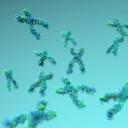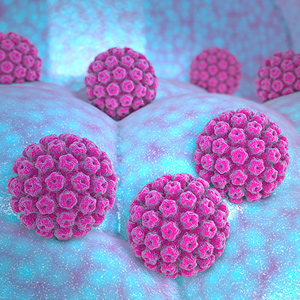Gynecologic Cancer
-
Forward Look
The Impact of HPV VaccinationOver a decade after human papillomavirus vaccines first became available in the U.S., their effect on cervical cancer incidence is becoming apparent.
by Carisa D. Brewster
-
Genetic Testing Gaps
Testing for hereditary mutations is increasingly recommended for people with cancer, but recommendations do not always translate into access to testing and appropriate counseling.
by Kate Yandell
-
Forward Look
What’s Next? Fall 2020A therapeutic vaccine targeting advanced cervical cancer.
by Anna Azvolinsky
-
Cervical Cancer Screening Guideline Updated
A new version of the American Cancer Society's cervical cancer screening guideline says screening can start at a later age and highlights human papillomavirus testing as the preferred method.
by Anna Azvolinsky
-
Survivor Profile
Sharing Her StrengthDiagnosed with two cancers prior to turning 40, Rebecca Esparza uses her voice to advocate for policy changes to help people affected by cancer.
by Lindsey Konkel
-
From the Editor-in-Chief
Human Papillomavirus Vaccines: Bad News, Good News and Great NewsIncreased vaccination rates can help reduce cervical cancer as a worldwide health threat.
by William G. Nelson, MD, PhD
-
BRCA: Who Should Be Tested?
Genetic testing for mutations in the BRCA1 and BRCA2 genes creates opportunities for cancer risk reduction. But 25 years after the mutations were discovered, some who could benefit from testing are still left out.
by Sue Rochman
-
Our Own Words
People with cancer and their loved ones find ways for their voices to be heard without filters.
by Bradley Jones
-
Finding Support in Unlikely Places
After her diagnosis with ovarian cancer, Patricia Anne Ward noticed that some friends and family pulled away. She found connection outside her usual circles.
by Patricia Anne Ward
-
Why Is the Rate of Uterine Cancer Rising?
Uterine cancer incidence is increasing in the U.S., particularly in Hispanic, Asian and black women, but obesity may play a smaller role in this change than was previously assumed.
by Ashley P. Taylor














